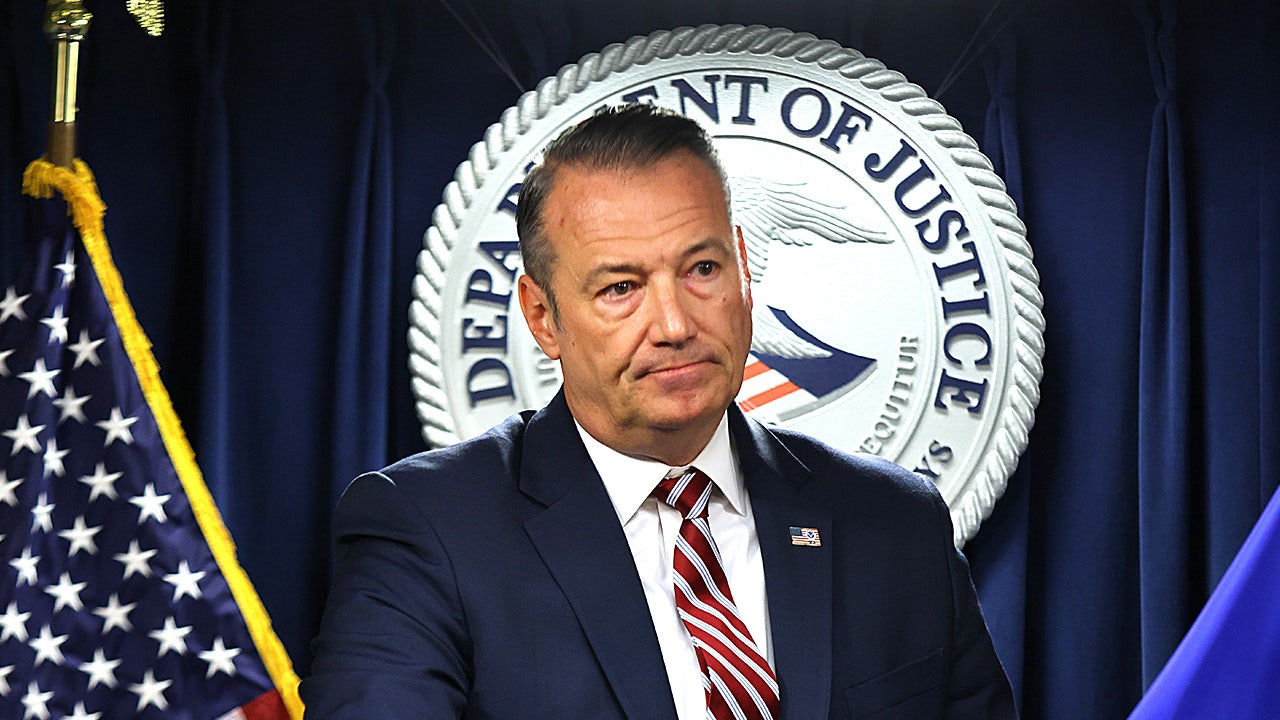This ban doesn’t apply to Americans here at home, like Rep. Swalwell for instance. Instead it applies to government workers and their families who are serving in China.
The US government has imposed a sweeping ban prohibiting American diplomats, their families and security-cleared contractors in China from engaging in romantic or sexual relationships with Chinese citizens, Associated Press has reported.
The policy applies to staff at the US embassy in Beijing and consulates in Guangzhou, Shanghai, Shenyang and Wuhan, as well as the consulate in Hong Kong. US personnel stationed outside China or those already in pre-existing relationships with Chinese citizens might be exempt, the report said, citing unnamed sources with knowledge of the matter.
This isn’t a new Trump administration move. On the contrary, a weaker version was put in place under the Biden administration last summer. The initial version just limited government workers in China from having relationships with people who worked at US embassies in the country. But at some point, someone in congress complained that the policy wasn’t strong enough. Just before leaving office in January, U.S. Ambassador Nicholas Burns broadened the policy to include just about anyone working for the US government inside China having a relationship with any Chinese national.
A more limited version of the policy was enacted last summer prohibiting U.S. personnel from “romantic and sexual relations” with Chinese citizens working as guards and other support staff at the U.S. Embassy and five consulates in China. But Burns, the departing ambassador, broadened it to a blanket ban on such relations with any Chinese citizen in China in January, days before President Donald Trump took office…
The new policy covers U.S. missions in mainland China, including the embassy in Beijing and consulates in Guangzhou, Shanghai, Shenyang and Wuhan, as well as the American consulate in the semi-autonomous territory of Hong Kong. It does not apply to U.S. personnel stationed outside China.
Of course the government isn’t commenting on what prompted this new policy but it does make you wonder: How often does this happen in China? I mean, spies using sex to gain secrets isn’t new, but apparently the US hasn’t had a complete ban like this in place since World War II. And that suggests this was a real problem, i.e. lots of US men in China were being approached by attractive Chinese women, some of whom (most of whom?) were actually spies.
We’ve seen China try this sort of thing before, even here in the US.
A suspected Chinese intelligence operative developed extensive ties with local and national politicians, including a U.S. congressman, in what U.S. officials believe was a political intelligence operation run by China’s main civilian spy agency between 2011 and 2015, Axios found in a yearlong investigation…
The woman at the center of the operation, a Chinese national named Fang Fang or Christine Fang, targeted up-and-coming local politicians in the Bay Area and across the country who had the potential to make it big on the national stage.
Through campaign fundraising, extensive networking, personal charisma, and romantic or sexual relationships with at least two Midwestern mayors, Fang was able to gain proximity to political power, according to current and former U.S. intelligence officials and one former elected official…
Among the most significant targets of Fang’s efforts was Rep. Eric Swalwell (D-Calif.).
That’s just one notorious example but there are many, many more. Just last month two US servicemembers were indicted for transmitting military secrets to people based in China.
Jian Zhao, and Li Tian, active-duty U.S. Army soldiers stationed at Joint Base Lewis-McChord, along with Ruoyu Duan, a former U.S. Army soldier, were arrested today following indictments by federal grand juries in the District of Oregon and the Western District of Washington…
The indictment in the Western District of Washington alleges that beginning in or about July 2024, and continuing to the date of the arrest, Jian Zhao, an active-duty U.S. Army Supply Sergeant, conspired with others known and unknown to the grand jury to obtain and transmit national defense information to individuals based in China. Zhao is further alleged to have committed bribery and theft of government property.
Specifically, Zhao was charged for his conspiracy to collect and transmit several classified hard drives, including hard drives marked “SECRET” and “TOP SECRET”, negotiating with individuals based in China for their sale, and agreeing to send the classified hard drives to the individuals in China. In exchange for the sale of the classified hard drives, Zhao received at least $10,000. Zhao is further alleged to have conspired to sell an encryption capable computer that was stolen from the U.S. Government, and sensitive U.S. military documents and information, including information related to the High Mobility Artillery Rocket System (HIMARS), and information related to U.S. military readiness in the event of a conflict with the People’s Republic of China.
And last year a former CIA agent pleaded guilty to doing the same thing.
Alexander Yuk Ching Ma, 71, of Honolulu, a former Central Intelligence Agency (CIA) officer, pleaded guilty today to conspiring to gather and deliver national defense information to the People’s Republic of China (PRC)…
As Ma admitted in the plea agreement, in March 2001, when he no longer worked for the CIA, at the request of intelligence officers employed by the PRC’s Shanghai State Security Bureau (SSSB), Ma convinced CC #1 to meet with SSSB intelligence officers in a Hong Kong hotel room. Over the course of three days, Ma and CC #1 provided the SSSB with a large volume of classified U.S. national defense information. At the conclusion of the third day, the SSSB intelligence officers provided CC #1 with $50,000 in cash, which Ma counted.
China is constantly trying to steal information from us, sometimes by lying and sometimes by paying US nationals to hand it over. If anything, we’re probably not doing enough to stop their constant infiltration and theft of government and private industry secrets. So the new policy seems like a good thing.
Read the full article here






![McMahon Holds the Line on Education Reform—Democrats Aren’t Happy [WATCH] McMahon Holds the Line on Education Reform—Democrats Aren’t Happy [WATCH]](https://www.rvmnews.com/wp-content/uploads/2024/11/2024.11.21-07.33-rvmnews-673f8b229dee1.jpg)
![Trump Takes Trolling to Another Level During Meeting with Jeffries and Schumer [WATCH] Trump Takes Trolling to Another Level During Meeting with Jeffries and Schumer [WATCH]](https://www.lifezette.com/wp-content/uploads/2025/10/2025.10.01-03.41-lifezette-68dd4bb32409d.jpg)


![Joe Rogan Blasts ‘Evil’ Leftists Cheering Charlie Kirk Assassination on Social Media [WATCH] Joe Rogan Blasts ‘Evil’ Leftists Cheering Charlie Kirk Assassination on Social Media [WATCH]](https://www.boredtrashpanda.com/wp-content/uploads/2025/05/2025.05.27-11.48-boredtrashpanda-6835a69311319.jpg)
